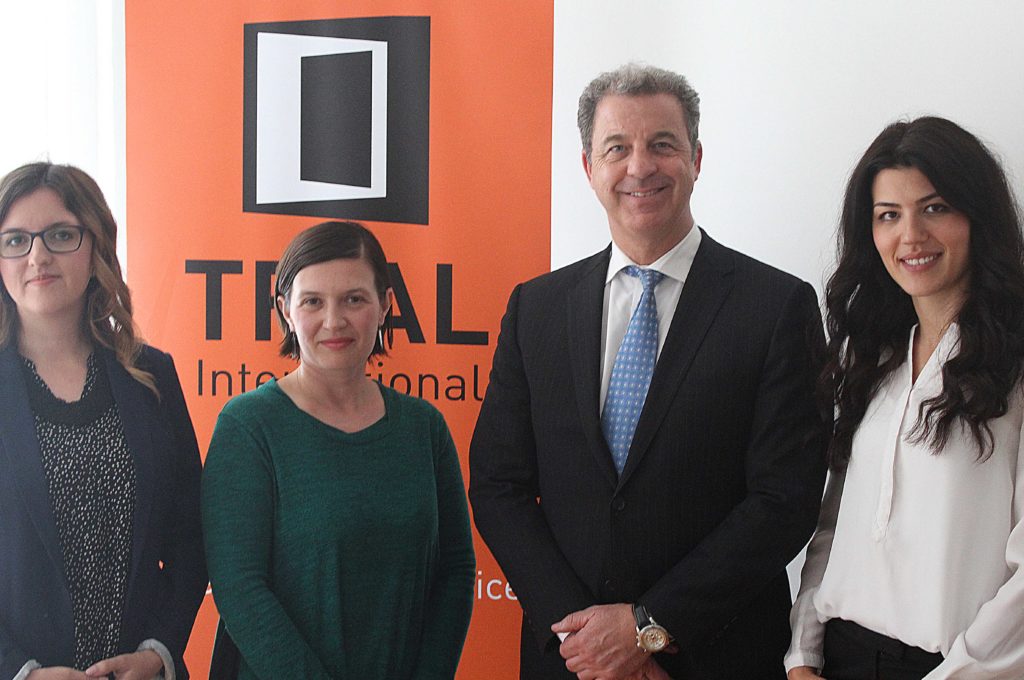To Permanent Representatives of Members and Observer States of the UN Human Rights Council: Renewing the Mandate of the Commission of Inquiry on Burundi and Ensuring Accountability for Serious Crimes.
Your Excellencies,
We, the undersigned civil society organizations, write to urge you to support a resolution renewing the mandate of the UN Commission of Inquiry (CoI) on Burundi and to call on the United Nations Human Rights Council (UN HRC) at its forthcoming 36th session to explore all options to ensure accountability for the crimes documented by the COI, including as recommended by the COI, the opening of an investigation by the International Criminal Court (ICC) whose Office of the Prosecutor announced the opening of a preliminary examination on 25 April 2016. In addition, we urge the UN HRC to call for Burundi’s suspension from the Council, or at a minimum to explicitly request the General Assembly to take up the matter in accordance with OP8 of GA resolution 60/251.
The COI has confirmed the continuation of serious human rights violations from April 2015 to date, including extrajudicial executions, arbitrary arrests and detention, torture and cruel, inhuman and degrading treatment, enforced disappearances and sexual violence perpetrated mainly by the National Intelligence Service (SNR), members of the Imbonerakure, the youth wing of the ruling party, the police and the army. The COI confirmed that they have reasonable grounds to believe that several of the violations documented constitute crimes against humanity.
Since the beginning of the crisis, Burundi’s once vocal and vibrant human rights organizations and independent media have been decimated and forced into exile. The COI has expressed its concerns about hate speech by the Burundian authorities and members of the ruling party aimed at intimidating and at times dehumanizing their opponents. While not constituting direct and public incitation to commit genocide, they contribute to “creating a dangerous climate of hate and terrorizing the population, and could reignite ethnic tensions.” Violations have continued unabated and with impunity.
The UN HRC adopted resolution 33/24 on 30th September 2016 establishing an independent international Commission of Inquiry to investigate human rights abuses in Burundi since April 2015, to identify alleged perpetrators and to provide recommendations to guarantee that perpetrators are held accountable. The government of Burundi has refused to cooperate with the COI, and suspended its cooperation with the Office of the High Commissioner for Human Rights in the country. Given Burundi’s persistent refusal to cooperate with the UN HRC and the gross and systematic violations of human rights occurring in the country, we urge Council members to initiate action towards suspending Burundi’s membership of the UN HRC.
The ICC has been analyzing acts of killing, imprisonment, torture, rape and other forms of sexual violence, as well as cases of enforced disappearances that have been allegedly committed since April 2015 in Burundi. Shortly after the creation of the COI, Burundi’s National Assembly and Senate swiftly approved a bill on October 12, 2016, to withdraw from the ICC and on October 27, 2016, the UN Secretary-General received official notification of Burundi’s withdrawal from the Rome Statute. The withdrawal will come into effect on October 27, 2017. Burundi’s withdrawal does not affect its obligation to cooperate fully with the ICC on any criminal investigations and proceedings that are initiated before the withdrawal comes into force.
The government of Burundi has failed to hold accountable the individuals responsible for brutal crimes and by withdrawing from the ICC, it is attempting to deny justice for the victims. Given the gravity of the human rights violations in Burundi, we urge you to support a resolution during the 36th Session that renews the mandate of the COI, calls for further action to ensure justice for the victims and initiates action for Burundi’s suspension from the UN HRC.
Yours sincerely,
- Action des Chrétiens pour l’Abolition de la Torture – Burundi (ACAT-Burundi)
- Assistance Mission for Africa
- Association Burundaise pour la Protection des Droits Humains et des Personnes Détenues (APRODH)
- Association for Human Rights in Ethiopia (AHRE)
- Centre for Civil and Political Rights (CCPR)
- CIVICUS
- Coalition Burundaise pour la Cour Pénale Internationale (CB-CPI)
- Community Empowerment for Progress Organisation South Sudan (CEPO)
- DefendDefenders (the East and Horn of Africa Human Rights Defenders Project)
- Eritrean Law Society (ELS)
- Eritrean Movement for Democracy and Human Rights (EMDHR)
- Forum pour la Conscience et le Développement (FOCODE)
- Forum pour le Renforcement de la Société Civile au Burundi (FORSC)
- Global Centre for the Responsibility to Protect (GCR2P)
- Human Rights Concern – Eritrea (HRCE)
- Human Rights Institute of South Africa (HURISA)
- Human Rights Watch (HRW)
- Information Forum for Eritrea (IFE)
- International Commission of Jurists (ICJ)
- International Federation for Human Rights (FIDH)
- International Federation of Action by Christians for the Abolition of Torture (FIACAT)
- International Service for Human Rights (ISHR)
- International Youth for Africa
- Ligue Iteka
- Mouvement des Femmes et des Filles pour la Paix et la Sécurité (MFFPS)
- National Coalition of Human Rights Defenders – Kenya
- National Coalition of Human Rights Defenders – Uganda
- Pan Africa Human Rights Defenders Network
- Réseau des Citoyens Probes (RCP)
- SOS-Torture
- Tanzania Human Rights Defenders Coalition (THRDC)
- The Ecumenical Network for Central Africa (ÖNZ)
- TRIAL International
- Union Burundaise des Journalistes (UBJ)
- World Organisation Against Torture (OMCT)

